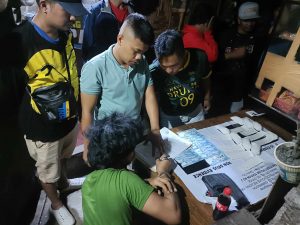City Health Officer Dr. Josephine Villafuerte has cautioned the proposed five-year extension of the retirement age of Barangay Health Workers (BHW), saying it should be discussed internally first.
“I am not against this but this should be discussed by the local health board” said Villafuerte, a member of the local body.
“They should not go ahead of the local chief executive.”
Villafuerte responded to the proposal of City Councilor Mary Joselle Villafuerte, also a physician by profession, to amend the existing criteria for terminating BHWs based on their age.
In the criteria, BHWs are automatically terminated when they reach the age of 60.
Councilor Villafuerte, saying she received several requests from the BHWs on matter, pushed for the retirement age of 65.
However, according to the city health officer, extending the years of service of BHWs will give lesser chances to younger ones to be able to serve.
“While some 60-year-olds may still be capable and active, others are not. There are more demand for services that needs to be delivered to the barangays nowadays. Of course, if you are elderly you have more limitations,” she said.
“We also want to give chance to the younger people who also want to serve. We want to provide excellent services especially through ensuring that our BHWs are really able,” she said.
The CHO chief also noted that BHWs are not covered with hazard pay and only receives P5,000 a month.
“Besides, if something happens to them while delivering the services, we must remember they are just volunteers, they don’t have a compensation for that. What can we give them in case they encounter accidents?” she said.
The city health officer added that the need for younger BHWs is essential especially in the far-flung areas in the city.
“They have to go up to the farthest areas in the barangay,” she said.
The BHWs, according to CHO chief, are tasked with many frontline health services.
“They go for house to house immunization campaign, they go to their purok to look for sick pregnant women and refer them to the health center. Basically, they really have to go around their community to deliver frontline health services,” she said.




